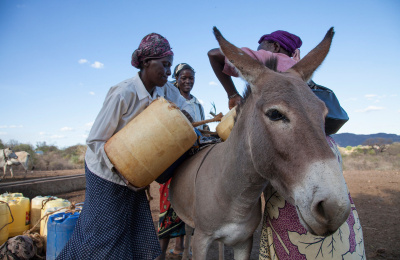The Donkey Sanctuary is the first equine charity to be accepted into the United Nations’ Mountain Partnership, part of the UN Food and Agriculture Organisation.
As a global leader for equine welfare, research and veterinary care we operate programmes worldwide for animals working in agriculture, industry and transportation. By joining the Mountain Partnership, we will be working with international governments and other world non-governmental organisations to help improve the lives of mountain animals and people everywhere as well as helping protect mountain environments globally.
Donkeys and mules matter
Membership of UN organisations is important. It gives our work around the world greater recognition and improves our influence on donkey welfare everywhere. We work hard to improve life for donkeys in various mountain areas, including India and Nepal where pack mules play a vital role in transporting food and goods. We also help donkeys working in the brick kiln industry in the region, supporting people who depend on this work for their income. In Mexico donkeys and mules collect required cacti and firewood from the steep hills and forests of southern Mexico and we help those animals too.
João Rodrigues, Senior Lead, Welfare Assessment said: "Having the opportunity to join the Mountain Partnership is absolutely fantastic, as it allows us to create new ways to promote the health and welfare of working equids.
"We should keep in mind that many mountain communities are often some of the poorest, frequently situated in the most marginal of environments. In such cases, working equids play a fundamental role in strengthening human livelihoods through their contribution to economic, environmental, and social capital."
Women and children benefit
In many mountain communities, working equids can help reduce the workload of family members, directly benefiting women and children. Where this is the case, liberation from manual work increases the available time for the children’s education and facilitates a greater involvement of women in the governance of communities, thereby also raising the status of women and further safeguarding rural social structures.
There are an estimated 112 million working horses, ponies, donkeys and mules helping serve the livelihoods of some of the poorest communities in the world. Seen as a beast of burden, their socio-economic value is often taken for granted. However, research has found that rural communities around the world rank working equids as their most important animals as they help to support income generation.






